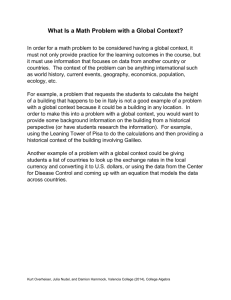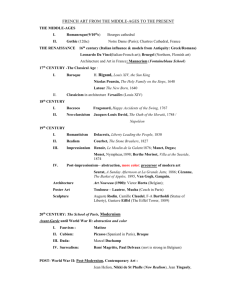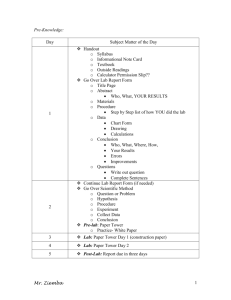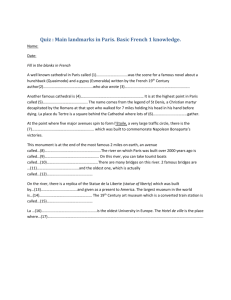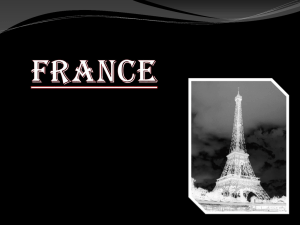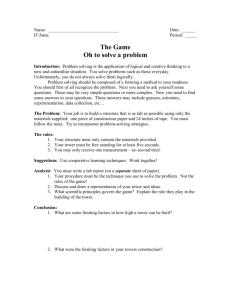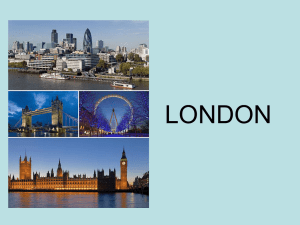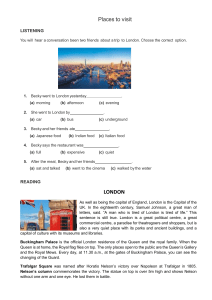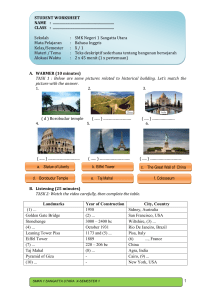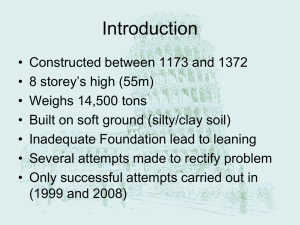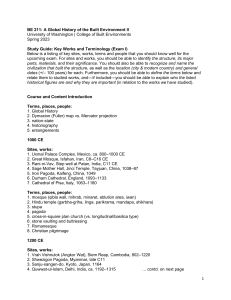Landmarks and Relative Location
advertisement
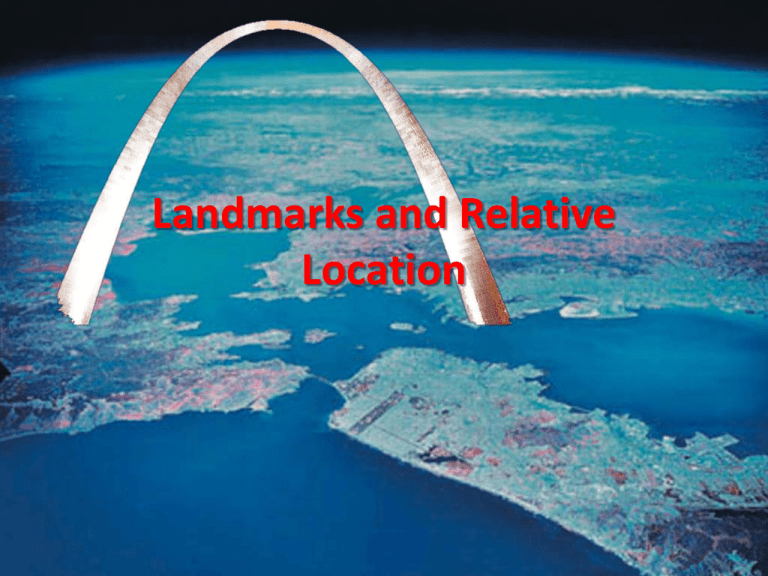
Landmarks and Relative Location World-wide Recognition • When a natural or man-made feature of the earth is widely recognized beyond the place of its origin the sight of that feature or the mention of it causes this reaction in most educated people: – I know the city where that is located . . . – I know the country where that is located . . . – I know the region where that is located . . . A few examples • • • • • The “Arch” in St. Louis, Missouri in the U.S.A. The “Great Wall” in China The “Grand Canyon” in the U.S. Southwest St. Peter’s Basilica in Vatican City The Colosseum in Rome, Italy • Now, let us view some . . . . . . . OTHER EXAMPLES U.S. Capital Building, Washington, D.C. Golden Gate Bridge in San Francisco, California in the U.S.A. Big Ben in London, UK Stonehenge, UK The White House in Washington, D.C. Chitzen Itza in Mexico Arc de Triomphe in Paris, France Washington Monument, Washington, D.C. Mt. Rushmore, U.S.A. Jefferson Memorial, Washington, D.C. Space Needle in Seattle, Washington – U.S.A. The Dome of the Rock in Jerusalem Eifel Tower in Paris, France Machu Picchu, Peru Tower Bridge, London, UK Taj Mahal, India Sphinx and Pyramid, Egypt Parthenon in Athens, Greecde Ponte Vecchio in Florence, Italy Leaning Tower of Pisa in Pisa, Italy Hagia Sophia, Istanbul, Turkey Sydney Opera House, Sydney, Australia Lotus Temple, India St Basil Cathedral. Moscow Ayers Rock in the Australian “Outback” Angkor Wat in Cambodia The Matterhorn in the Swiss Alps, Switzerland "Christ the Redeemer" statue in Rio de Janeiro, Brazil Notre Dame Cathedral in Paris, France

